

All in: Allied Health Teams at Work
Team work makes the dream work!
Quarter 2 2025 – Allied Health Awards Magazine
This special is all about homage to the allied health teams... this is often our super power in allied health isn’t it?
We know when to defer and refer on to our team mates. We understand our own scope of practice. We work better in a team and our clients get better outcomes!
Read all about the current top performing allied health teams across Australia and how they do what they do... what makes them special? What makes them work so well??
NOMINATIONS ARE NOW OPEN FOR THE 2026 PROGRAM!
Jump on, copy/paste/edit/add to previous applications... use the application process as it was designed... an amazing reflective and reaffirming process of the work that you and your team are doing... why you do it and the amazing outcomes you get for your clients!
We are also kicking off our NETWORKING SERIES around the place... keep a look out for a date near you.
Look after your colleagues AND yourself – This is more important now than ever...
Sarena Founder – Allied Health Awards

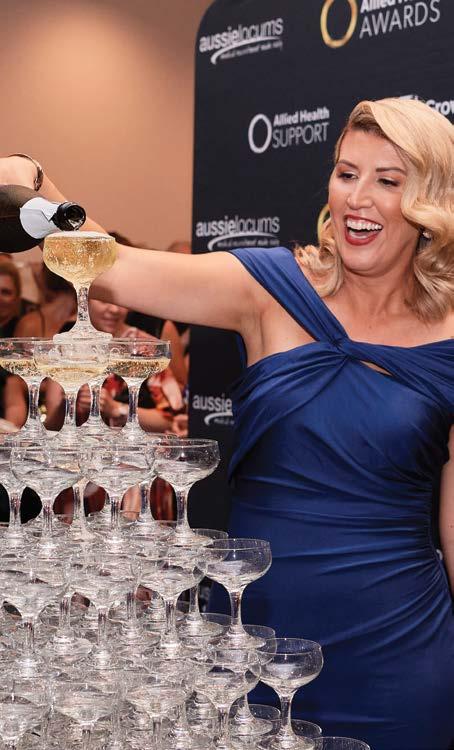


team
[teem] noun
A collection of brilliant individuals that collaborate to achieve extraordinary results.
People with complimentary skills who achieve much more together than they would without each other.
GALA ‘26


TIPS FOR HOW TO WRITE
A GREAT NOMINATION APPLICATION
Shortcut to the Nominations Platform
• Read the FAQs on the website and also the information blocks in the nomination platform
• Self-nominate… go on, you can do it! It’s anonymous!!
• Check the selection criteria weighting, this differs for many of the categories…
• Address every selection criteria in the application
• Use the word count as a guide
• Use examples! As many as you can…
• Don’t just say “we do this…” give us the evidence and measures… how do you know you’re doing awesome work?
• These are allied health awards, not business awards
Remember this is an Allied Health Awards program – by Allied Health and for Allied Health! It’s more about the core values of being a health practitioner.
FAQ
What do the winners get?
Winners of the Allied Health Awards enjoy a variety of prestigious benefits. Along with the glory and bragging rights, winners receive:
Exclusive Access: Access and huge discounts to specialised leadership training programs tailored specifically for Allied Health professionals.
Trophies and Certificates: A stunning trophy and a digital certificate commemorating their achievement.
Promotion and Visibility: Increased visibility across our extensive network of allied health professionals, which enhances their credibility and reach. Winners become wellknown figures within the community.
Media Features: Interviews with winners will be featured across various social media platforms and in health publications.
Can I apply for more than one award?
You absolutely can! Apply for as many as you are eligible for!
Who is eligible for nomination?
• Allied Health professionals who are currently registered to practice through their National Association or Body
• Has practiced either clinically or non-clinically 6 months in the last 12 months.
• Australian residents
I’m too embarrassed to nominate myself, what do you recommend?
Actually it is recommended that you absolutely self-nominate! It is anonymous, only the organisers will know. It makes it SO much easier to complete the nomination as you have all the information required and your CV and headshot etc.
Too often we receive inadequate nomination applications and we can only assess what we receive! You will submit a far better quality application if you complete it yourself.
AUSTRALIAN ALLIED HEALTH AWARD CATEGORIES 2026
INDIVIDUAL - PROFESSION CATEGORIES
• Arts Therapist of the Year
• Audiologist of the Year
• Chiropractor of the Year
• Music Therapist of the Year
• Speech Pathologist of the Year
• Dietitian of the Year
• Exercise Physiologist of the Year
• Orthotist / Prosthetist of the Year
• Osteopath of the Year
• Physiotherapist of the Year
• Podiatrist of the Year
• Perfusionist of the Year
• Medical Radiation Practitioner of the Year
• Occupational Therapist of the Year
• Orthoptist of the Year
• Genetic Counsellor of the Year
• Social Worker of the Year
• Rehabilitation Counsellor of the Year
• Psychologist of the Year
• Hospital Pharmacist of the Year
• Credentialed Diabetes Educator of the Year
• Pedorthist of the Year
• Paramedic Practitioner of the Year
INDIVIDUAL - GENERAL CATEGORIES
• Allied Health Assistant of the Year
• Allied Health Early Career Excellence
• Allied Health Educator Excellence
• Allied Health Impact & Innovation Excellence
• Allied Health Excellence in Management & Leadership
TEAM CATEGORIES
• Allied Health Innovative Product Excellence
• Allied Health Team Culture Excellence
• Allied Health Paediatric Team Excellence
• Allied Health Adult Team Excellence
ALLIED HEALTH PARTNERS
• Allied Health – Partnership & Collaboration Excellence
*categories subject to change

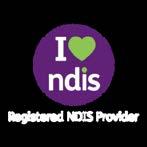




FACEBOOK.COM/ALLIEDHEALTHAWARDS

INSTAGRAM.COM/ALLIEDHEALTHAWARDS

LINKEDIN.COM/COMPANY/ALLIED-HEALTH-AWARDS
INTRODUCING
THERAPIES Allied Health
How did your team come together?
(Tell us your origin story!)
In 2021, Sarena Jones, decided to begin a new clinical journey alongside her other businesses - Allied Health Support Services and the Allied Health Awards. We started as a small team of 2 OT’s and some admin support! Over the next few years, the team has grown and changed. Today, Allied Health Therapies is a team of 10 incredible people, with a diverse range of professions. We offer home and community based Occupational Therapy, Physiotherapy, Dietetics and Nutrition, Social Work and Exercise Physiology services, supported by our management and administrative team and an Allied Health Assistant.
In your experience, what makes an allied health team truly effective?
Our team are incredible capable as individuals in their roles, and this is highlighted and strengthened by the collaboration, compassion and commitment, making them a truly incredible and effective team.
What are some of the biggest benefits patients receive from multidisciplinary teamwork and what barriers can sometimes get in the way?
Multidisciplinary teams offer a high level of communication, collaboration and personalised support, allowing for increased continuity of care and allows for creative solutions and a holistic approach - all of which lead to better outcomes. Can you share a moment or story where collaboration between allied health professionals made a meaningful impact?
I could write so many examples of when our team has made meaningful impact on the lives of their clients - every day we see examples of them going above and beyond, creating positive communication within the client’s teams, providing
Our Vision
To be an effective and well-loved multidisciplinary health team that achieves goals for both its team members and clients alike.

their professional insights into different situationsbut I think the 1 thing worth highlighting is Allied Health Therapies focus on networking, education and growth for the community of allied health professionals, and others working in the disability space on the Sunshine Coast. Our networking events & other opportunities bring everyone together, build strong professional relationships and increase knowledge, which benefits clients now and into the future.
How do allied health professionals typically complement one another in a team setting?
Allied Health professionals all come from different perspective and different backgrounds. They have diverse approaches to
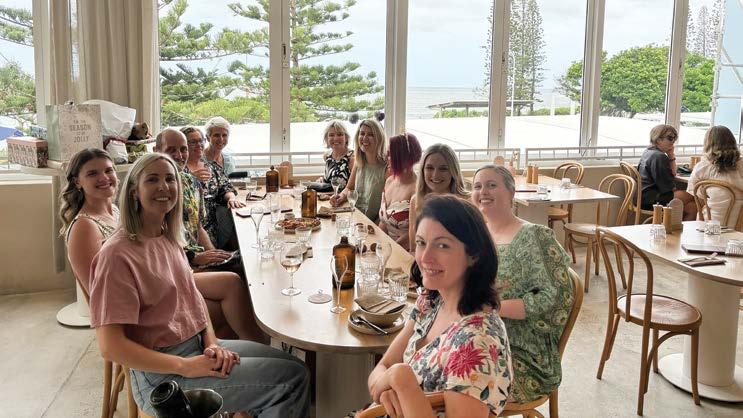
Describe your team in three words. Caring. Collaborative.
scenarios, which helps to create and see the big picture. These complementing perspective help support growth and education within the team and the wider community. leading to better client outcomes across the board.
What advice would you give to clinics or services just starting to build a collaborative allied health model? Do it!!! Find some experienced, knowledgeable and collaboratively minded clinicians who can benefit your clients and your team. Focus on the services that often-run parallel to your key client base and build out from there. Offering additional services that complement your current model will provide opportunity for growth and development for years to come.
How does the setting or environment shape the way allied health teams work together, and what challenges can arise as a result?
Our team work remotely, flexibly, in their clients’ homes and in the community. We have found the value of this is incredible! Our team are connected by technology every day and our team days throughout the year, but manage their time themselves giving them flexibility, responsibility and autonomy. We work hard to ensure our team feel connected and engaged with each other, and

over the last few years have found an incredible balance and flexibility. Clinically, by going into our clients’ homes and their communities we are able to provide the most accurate assessment, recommendations and strategies, we see the whole picture and can personalise services in every instance.
Have you seen any emerging models, tech, or systems that support stronger team-based care?
The rise of technology and AI is playing such an interesting role in small businesses across many sectors. There is a shift towards flexible, remote models of work and our team is definitely embracing this shift. Technology now, allows our team to stay connected, every day, whilst working wherever works best for them. For me, as long as I have my computer and an internet connection, I can do my job anywhere and anytime. For allied health practices, this is huge, and I think we will continue to see a mixture of clinic based, hybrid and remote work models and we will see new systems and tech evolving to allow for this.
What role do leadership or shared values play in keeping a team aligned and effective?
Our team has a strong foundation of shared values, and we check in regularly to ensure we are all aligned and working towards not only our personal and professional goals, but our teams’ goals. Sarena, our director, is a force of nature. She is kind and caring and intelligent and has the ability to ask the right questions, in exactly the right moment. Her leadership is integral to the success of our team. We also have such a diverse group
of professionals that provide so much opportunity for learning and growth to each other.
Why is it valuable to celebrate and recognise allied health teams, especially given the challenges they navigate in their day-to-day work?
Allied Health clinicians and team do so much to support and care for their clients. The compassion, care and professionalism they provide are integral to our health system and deserve to be outwardly and loudly celebrated! Every day they give their all to their work and are often met with challenges and changes to navigate themselves and support their clients to navigate. As a community it is so important to highlight the achievements of these individuals and teams, they are often overlooked in the broader health system, but the work allied health teams do is vital.
Any parting wisdom or message for other teams in the field today?
Back yourself and back your team. Never stop learning and growing, individually and as a business. And be a part of the wider community, build your network, learn from others and offer others support as well.
How can we connect with you?



hello@alliedhealththerapies.com 1800 600 530 Allied Health Therapies


Answers provided by Abi Kent, Business Operations Manager, Allied Health Therapies
WINNER
WESTERN KIDS HEALTH
2024 ALLIED HEALTH PAEDIATRIC TEAM EXCELLENCE
How did your team come together?
(Tell us your origin story!)
I started Western Kids Health in 2018 after working for several years at our local paediatric tertiary hospital. I loved the work, but I couldn’t ignore the gaps I saw in the system. So many kids—kids who didn’t quite meet the criteria for tertiary care, or who didn’t have a recognised diagnosis or a rare condition—were falling through the cracks. They still needed support, but there wasn’t always a clear path forward.
Around the same time, I became a mum myself— and like so many parents, I found myself bouncing between different health professionals, trying to piece things together. There was so much driving, so many mixed messages, and no single place where people came together to look at the whole child, as a team.
That experience lit a fire in me. I didn’t just want to create another clinic—I wanted to build a community. A place where families felt genuinely heard and supported. Where staff felt cared for, invested in, and inspired to grow. Where collaboration wasn’t just a buzzword, but part of the everyday culture.
We opened our doors with just five team members. Today, we’re a team of more than 40 passionate professionals—physios, OTs, speechies, dietitians, psychologists, and more—working side by side to help kids thrive. And while we’ve grown, our heart has stayed the same: family-centred care, community connection, and empowering parents to feel confident and capable.
What was your team’s reaction when you found out you won? (Any fun or unexpected moments?)
The whatsapp group chat went wild.

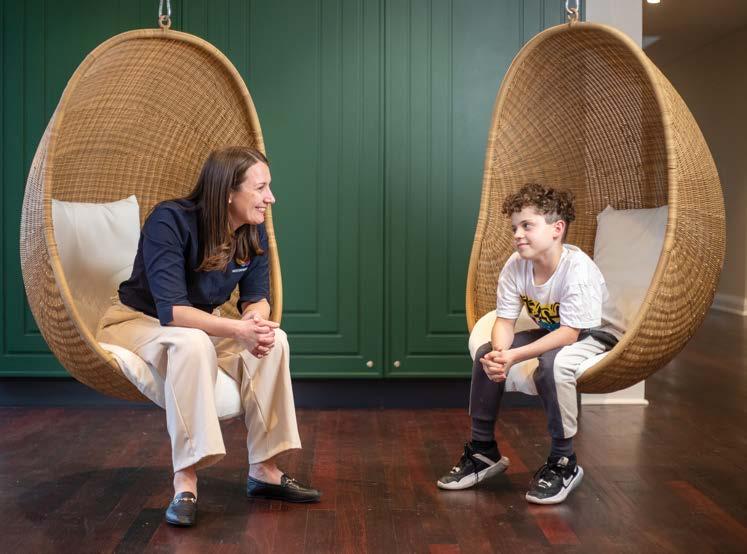
How has winning the award impacted your team? (Professionally and personally?)
What has been your team’s biggest achievement since winning? (A proud moment!)
Since winning the award, one of our proudest achievements has been successfully securing a grant to partner with Nature Play WA. Together, we’re working to adapt one of their existing programs to ensure it’s neuroaffirming and inclusive for all children.


Professionally, winning the award has been a huge moment of validation for our team. It’s recognised the years of hard work, care, and commitment that have gone into building Western Kids Health. We’ve always focused on doing the right thing for families—often going above and beyond, without expecting anything in return. This award felt like a powerful acknowledgment that what we’re doing matters, and that others can see the impact too. Personally, it’s meant even more. For me, it was an opportunity to recognise a group of people who never seek recognition themselves. Our team is full of humble, quietly brilliant clinicians and support staff who show up day after day, doing incredible work both in the clinic and in the community. They don’t shout about their successes, but I wanted them to be seen. This award was a way of saying— you’re amazing, and the difference you’re making is real, valued, and worth celebrating. It brought a real sense of pride, connection, and togetherness to our whole team.
Has winning the award helped with team recognition, funding, or new opportunities?
It’s created a platform for the development of partnerships with not-for profits.
This has been such a meaningful step for our team, involving our occupational therapists, physiotherapists, psychologists, taking our clinical expertise beyond the therapy room and into broader community settings. It’s allowed us to advocate for neurodivergent children in a really practical, values-aligned way, ensuring more families feel seen, supported, and included.
What’s one thing your team does together that strengthens your bond? (Fun Friday traditions? Coffee catch-ups? Something unusual?)
At Western Kids Health, we don’t just work together, we laugh, dress up, compete (sometimes questionably), and make memories together. One standout event that brought our team closer than ever was our annual Games Night. Hosted by the epically hilarious quizmaster Erin Butler, it is nothing short of legendary. From themed costumes and high-energy trivia to hallway magic
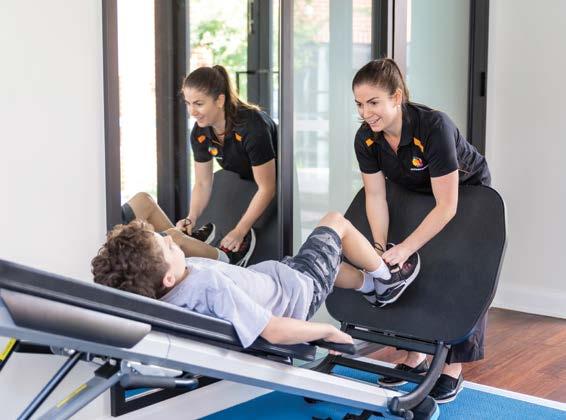

carpet relays and chaotic challenges like twerk pong, it is the perfect mix of team spirit and ridiculous fun.
But the fun doesn’t stop there, Book Week is another team favourite. Organised by the speech team we go all in, dressing up as our favourite characters and taking part in quirky challenges around the clinic. It’s playful, creative, and such a reflection of who we are as a team, passionate, united, and always up for a bit of joyful chaos. These traditions bring us closer together, remind us not to take ourselves too seriously, and help build the kind of strong, connected team culture we’re so proud of.
What’s one thing your team is doing to make a difference in the allied health community?
At Western Kids Health, we’re passionate about raising the bar across allied health, not just in how we care for kids, but in how we teach, advocate, and collaborate as a profession.
Our team delivers practical, evidence-based courses across Australia, including infant
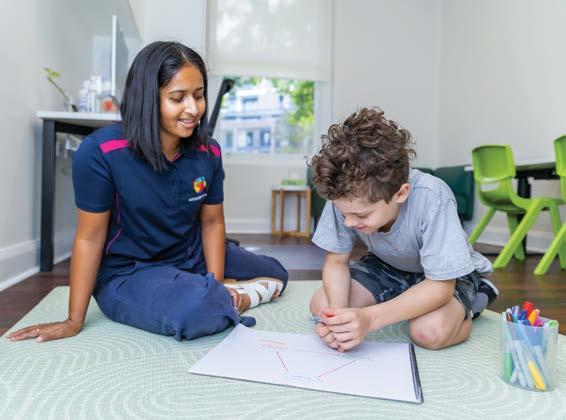

physiotherapy, paediatric musculoskeletal physiotherapy, functional neurological disorder, hypermobility-related disorders, introduction to feeding therapy, and idiopathic toe walking. Since mid-2023, over 150 clinicians have attended our workshops in Perth, Melbourne, Queensland, and regional WA, including upcoming trips to Karratha in June to support early-career and remote practitioners. Rowan, who leads our Complex Care team, presented at the Australian Association for Cognitive and Behaviour Therapy to over 70 professionals on diagnosis and treatment of functional neurological disorder in children.
We advocate beyond the therapy room, partnering with charities and not-for-profits like Tiny Sparks WA, JAFA, and the Arthritis Foundation of WA to co-design inclusive care and education.
Nicole is the APA National Paediatric Chair and sits on advisory boards for JAFA, the Autism Health Roadmap, and EDS Allied Health Working Group. Judith our Lead Psychologist joined the WA Government Gender Diversity Planning Roundtable, and we’ve collaborated with Perth
Finalists


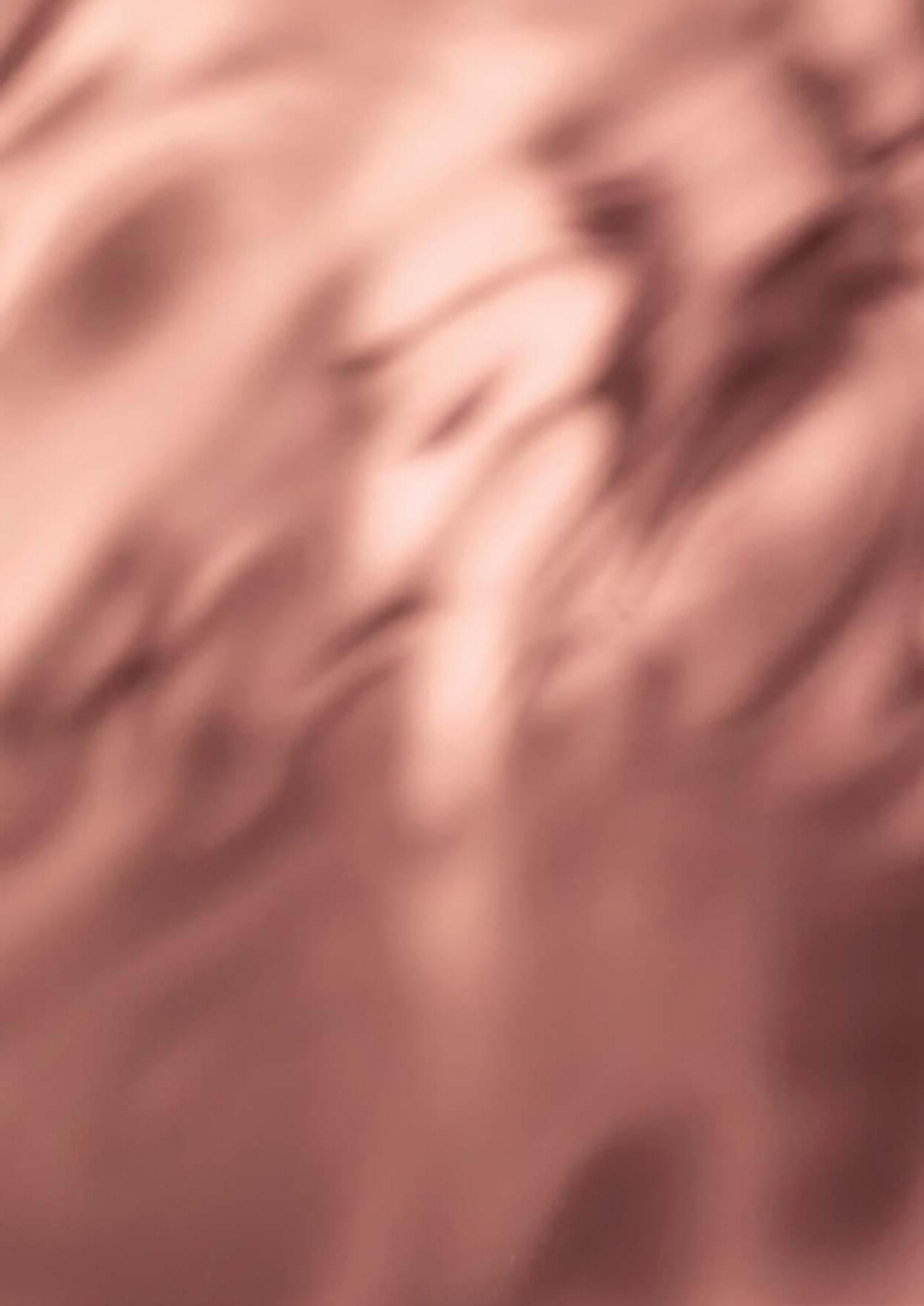
Describe your team in three words.

Children’s Hospital to streamline referral pathways and increase inclusivity.
In 2023, we responded to requests from GPs and Child Health Nurses by launching a professional education arm on our online platform. Since then, over 150 GPs and CHNs have enrolled in our portal to access current research, referral guidance, and clinical resources.
We’re also proud to be contributing to the evidence base. We’re conducting a feasibility study on group interventions for hypermobile children in partnership with Curtin University, Notre Dame, and the University of Queensland.








We’ve collaborated with Macquarie University on the development of the Targeted Motor Control (TMC) screening tool for kindy-aged children, and worked with the University of Western Australia on a multidisciplinary intervention for children experiencing persistent pain.
We’re also deeply committed to community connection. Our free parent resources have been downloaded more than 10,000 times. We’ve worked with Nature Play WA, Playgroup WA, and Mount Hawthorn Toy Library to support child development education and inclusivity. We regularly deliver free parent workshops on hypermobility, injury prevention, and school readiness. And we use media, The West Australian, Channel 7, 6PR, Perth Now—to promote evidence-informed messaging around risky play, handwriting, and school readiness. Every part of what we do is driven by a simple belief: when we share knowledge, collaborate with purpose, and centre families in everything, we all rise together.
What’s a challenge in allied health that you think more people should talk about?
We don’t talk enough about how much allied health professionals truly impact the lives of the people we see, and how often that impact goes unrecognised or undervalued, even by ourselves. Whether it’s helping a child say their first word, take their first independent step, feel safe in their own body, or participate fully at school - these aren’t small wins. They’re life-changing moments.

But in a system that often prioritises acute or medical care, the value of ongoing, relationshipbased support can be overlooked.
As a profession, we need to own our impact more confidently. We need to celebrate the everyday magic we’re part of and advocate for the time, funding, and recognition that this work deserves. Because when we see our own value, we’re better equipped to champion the people we serve.
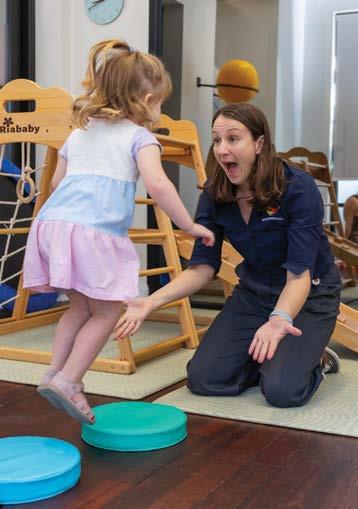
What advice would your team give to future nominees and winners of the Allied Health Awards?
Focus on what lights you up. Do the work you love, the way only you can do it—and give it your all. Whether it’s supporting families, mentoring others, advocating for change, or building something new, lean into your passion and do it ridiculously well.
Don’t chase recognition, chase impact. Stay grounded in your values, keep showing up for your community, and celebrate the little wins along the way. Because when you lead with heart and purpose, the rest tends to follow.
And if you do win? Take a moment to pause, reflect, and recognise how far you’ve come. You and your team deserve it.
What exciting projects or goals does your team have for 2025/2026?
One of our most exciting projects on the horizon is the launch of our new podcast, Into the Invisible. Led by Rowan Pearce, our Head of Complex Care, this podcast will explore the often unseen world of invisible conditions like functional neurological disorder, persistent pain, hypermobility spectrum disorders, and juvenile idiopathic arthritis.
We’ll be chatting with teens, young adults, parents, and health professionals to share real stories, bust myths, and shine a light on the challenges and strengths of those living and working with these conditions. Our goal is to elevate voices that often go unheard and build greater understanding, empathy, and connection
WINNER
WESTERN KIDS HEALTH
2024 ALLIED HEALTH TEAM CULTURE EXCELLENCE
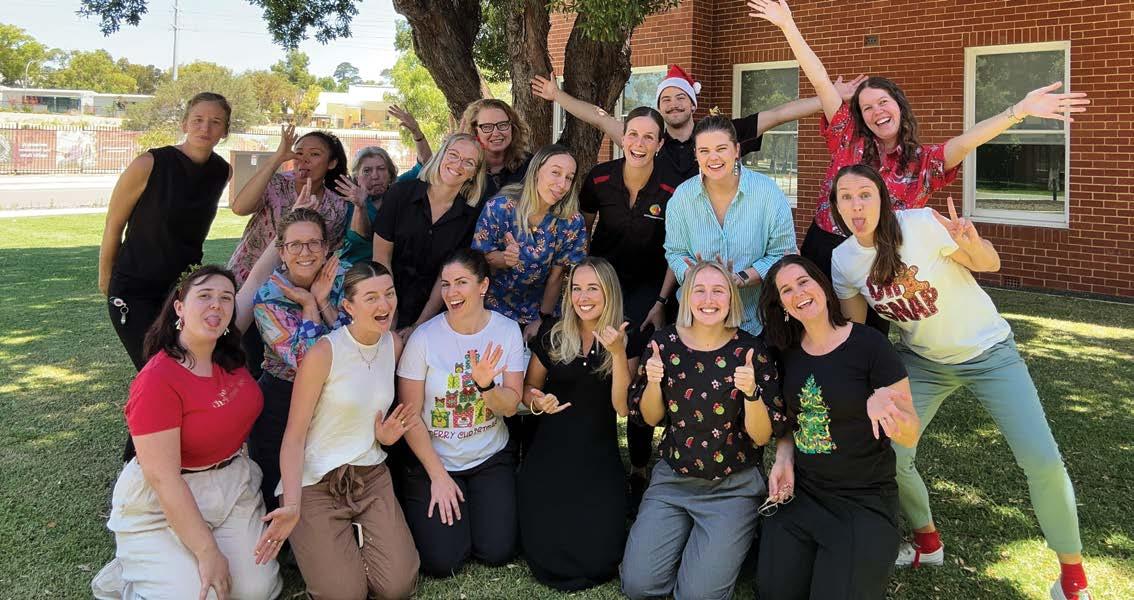
within the allied health community and beyond.
We can’t wait to share it with the world in 2025 because the invisible deserves to be seen, understood and supported.
If your team could collaborate with any group or person in allied health, who would it be and why?
We’d love to collaborate with the Australian Government to turn The Baby Play Academy into a national app and gift it to every baby born in Australia.
The first year of life is full of opportunity and we believe every family deserves access to simple, evidence-based ways to support their baby’s development. The Baby Play Academy is built around protective factors like fostering secure attachment, building physical literacy, and supporting early language and communication skills. It’s playful, practical, and parent-friendly.
Partnering with the government would allow us to reach families across all communities, including those who may not have easy access to allied health services, and empower them from day one. Because when we support parents to connect, play, and tune in early, we lay the foundation for lifelong wellbeing.
Do you have any additional thoughts or reflections on your experience as an award-winning team?
It’s been a privilege winning this award and we look forward to attending many more Allied Health Awards in the future.
How can we connect with you?

@westernkidshealth

@westernkidshealth
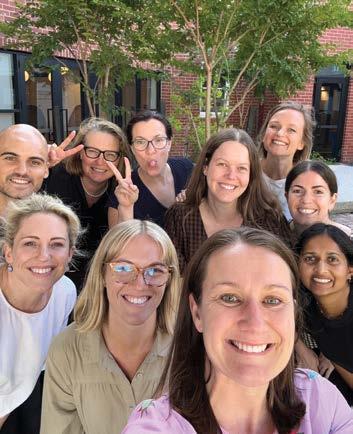










WINNER
NOT JUST BENDY HYPERMOBILITY SERVICES 2024 ALLIED HEALTH ADULT TEAM EXCELLENCE

How did your team come together?
(Tell us your origin story!)
Not Just Bendy Hypermobility Services started in 2020 when our Principal Physiotherapist, Sharon Hennessey, saw a big gap in care for people with hypermobility. She set out to change that—and hasn’t looked back since.
It didn’t take long before a couple of Sharon’s early patients, inspired by her approach, decided they wanted to work alongside her. What started as a one-person mission quickly became a growing team of passionate physiotherapists and allied health professionals.
As word spread, so did our growth. We expanded into larger, purpose-built facilities in 2022 and were honoured to be recognised as an EDS Centre of Excellence. Through it all, our mission has stayed the same: to empower our clients to feel confident, strong, and ready to take on life.
What was your team’s reaction when you found out you won? (Any fun or unexpected moments?)
There was plenty of excitement (and maybe even a few happy tears!), and we discovered that, when the occasion calls for it, we’re not afraid to be a little (lot!) loud in public! Above all we were really proud and honoured to be chose out of such an amazing group of nominees.
How has winning the award impacted your team? (Professionally and personally?)
Winning the award was an incredible moment for our team. We are deeply grateful! Realising our what we are trying to achieve was seen and acknowledged by other members of the Allied Health community, was deeply moving. It not only reinforced our passion for improving the quality of life for those living with hypermobility, but also reminded us just how much our work means to the community.
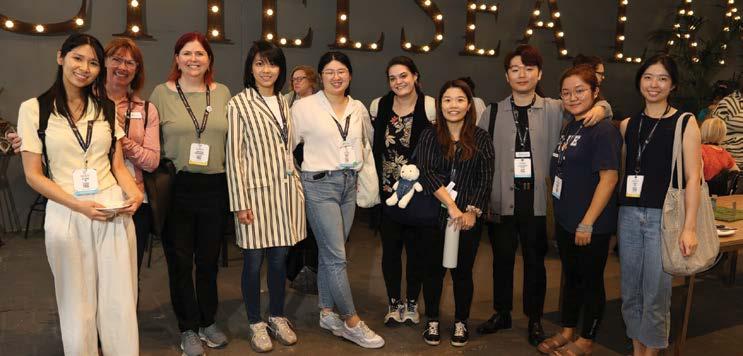
Has winning the award helped with team recognition, funding, or new opportunities?
Yes.
What has been your team’s biggest achievement since winning? (A proud moment!)
What a year it’s been!
One of our proudest moments came in February when we had the absolute honour of representing Not Just Bendy at the EDS Global Learning Conference right here in Brisbane. Sharon wowed over 200 in-person attendees (and thousands more online!) with her engaging presentation, led workshops, and shared her expertise in key panel discussions. Maria Yee, our brilliant Senior Physiotherapist, also presented her research on dance participation for hypermobile children and youth.
We loved connecting with inspiring physicians and allied health professionals from around the world. The new contacts and collaborations we formed are already helping us strengthen the care we provide for our hypermobility community
If someone spent a day with your team, what would surprise them the most?
If someone spent a day with our team, they’d probably be surprised by how friendly and funny we are—there’s always lots of laughter mixed in with the hard work. They’d also notice how much our physios collaborate, which new team members often say is really refreshing. We’re all about sharing knowledge (no gatekeeping here!) and creating a supportive space where everyone can learn and grow together.
What’s one thing your team is doing to make a difference in the allied health community?
Our team aims to set a new standard of client care by offering validation, education, and consistently going the extra mile. We’re dedicated not only to supporting our clients but also to improving knowledge of EDS and hypermobility within the wider allied health community. We actively foster strong relationships with our multidisciplinary partners to ensure collaborative, comprehensive care for every client.


It’s been a year of growth, learning, and so much pride in what we’re achieving together!
What’s one thing your team does together that strengthens your bond? (Fun Friday traditions? Coffee catch-ups? Something unusual?)
The best way our team stays connected, is through a thousand simple moments of connection, everyday moments—gathering for chats in the lunch room and sharing fun photos, and checking on each other during crazy weather on our social chat thread. Pet pictures are often the stars of the show, sparking plenty of smiles and laughter. These light-hearted connections strengthen our bond and keep our team spirit strong!
What’s a challenge in allied health that you think more people should talk about?
One of the biggest challenges in allied health that doesn’t get talked about enough is staff burnout and the need for self-care. We really believe it’s so important to look after the people who spend their careers looking after everyone else. We put a big focus on supporting our team’s mental and physical health so they can keep making a difference—without sacrificing their own wellbeing.
What advice would your team give to future nominees and winners of the Allied Health Awards?
If you’ve considered nominating yourself or someone else, I can’t recommend it enough. We
made some great connections at the networking event and Serena Jones (and her team) were amazing! We had the best time at the Awards Gala! It’s a genuine recognition of the incredible work happening across allied health professions. For those thinking about applying or nominating someone for the Allied Health Awards, I want to share a bit about the application process. At first, it can feel daunting to summarise everything you’ve worked on, but the key is to be proud of your achievements and be truthful about the impact you’ve made. Whether it’s patient outcomes, community involvement, or innovation in care, focus on what sets you apart and how your work makes a difference.
I made particular note to detail the unique challenges and successes we’ve had at Not Just Bendy. The process helped me reflect on just how far we’ve come and how much more we still want to achieve.
What exciting projects or goals does your team have for 2025/2026?
Looking ahead to 2025 and 2026, we have some exciting projects and goals on the horizon. We’re eager to support upcoming research initiatives and continue expanding our treatment streams to better serve the hypermobility community. Balancing caseloads and work-life balance remains a priority, along with finding ways to meet increasing demand while training the next generation of therapists in hypermobility care.
Describe your team in three

Through it all, we’ll keep doing what we do best – working together with a happy (if slightly quirky) smile on our faces!
If your team could collaborate with any group or person in allied health, who would it be and why?
If we could collaborate with any group or person in allied health, it would be professionals who already have an interest in hypermobility or are eager to learn more. We’re always on the lookout for like-minded allied health practitioners and love working closely with other medical team members. An interdisciplinary approach is key to providing the best care, and cotreating allows us to combine knowledge and create the most effective plans for our clients.
Do you have any additional thoughts or reflections on your experience as an award-winning team?
The best teams lift each other up—and that’s exactly what we do. As an award-winning team, we’ve learned that true success comes from supporting one another, sharing knowledge openly, and celebrating both the big milestones
and the small wins. Coming together with those who share your purpose is a truly amazing experience and has strengthened our commitment to making a difference. Recognition has reminded us that the extra effort we put into collaboration, education, and truly listening to our clients makes a real impact. We’re proud of how far we’ve come, but even more excited for the future and the difference we can continue to make together to hypermobile lives.
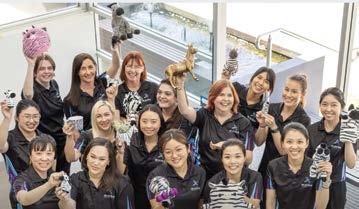

07 3123 4826

reception@notjustbendy.com


Notjustbendy notjustbendyhypermobility

Not Just Bendy Hypermobility Services

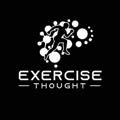





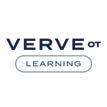



How can we connect with you?

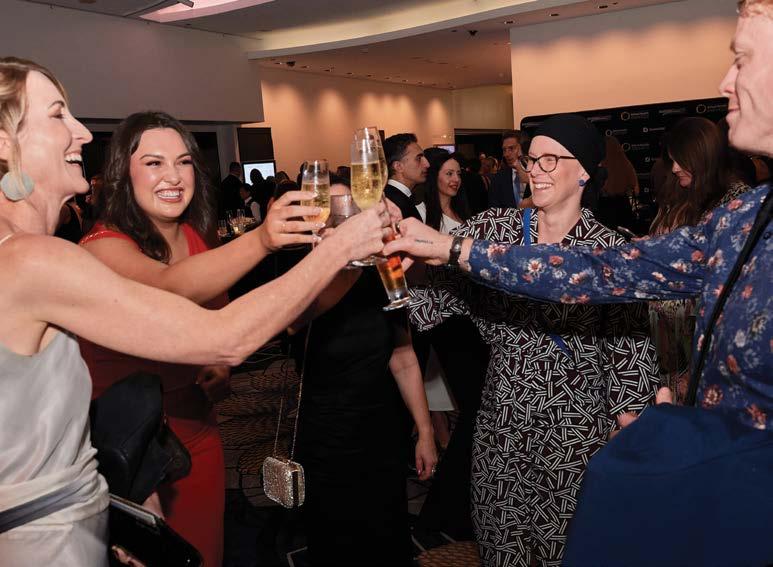

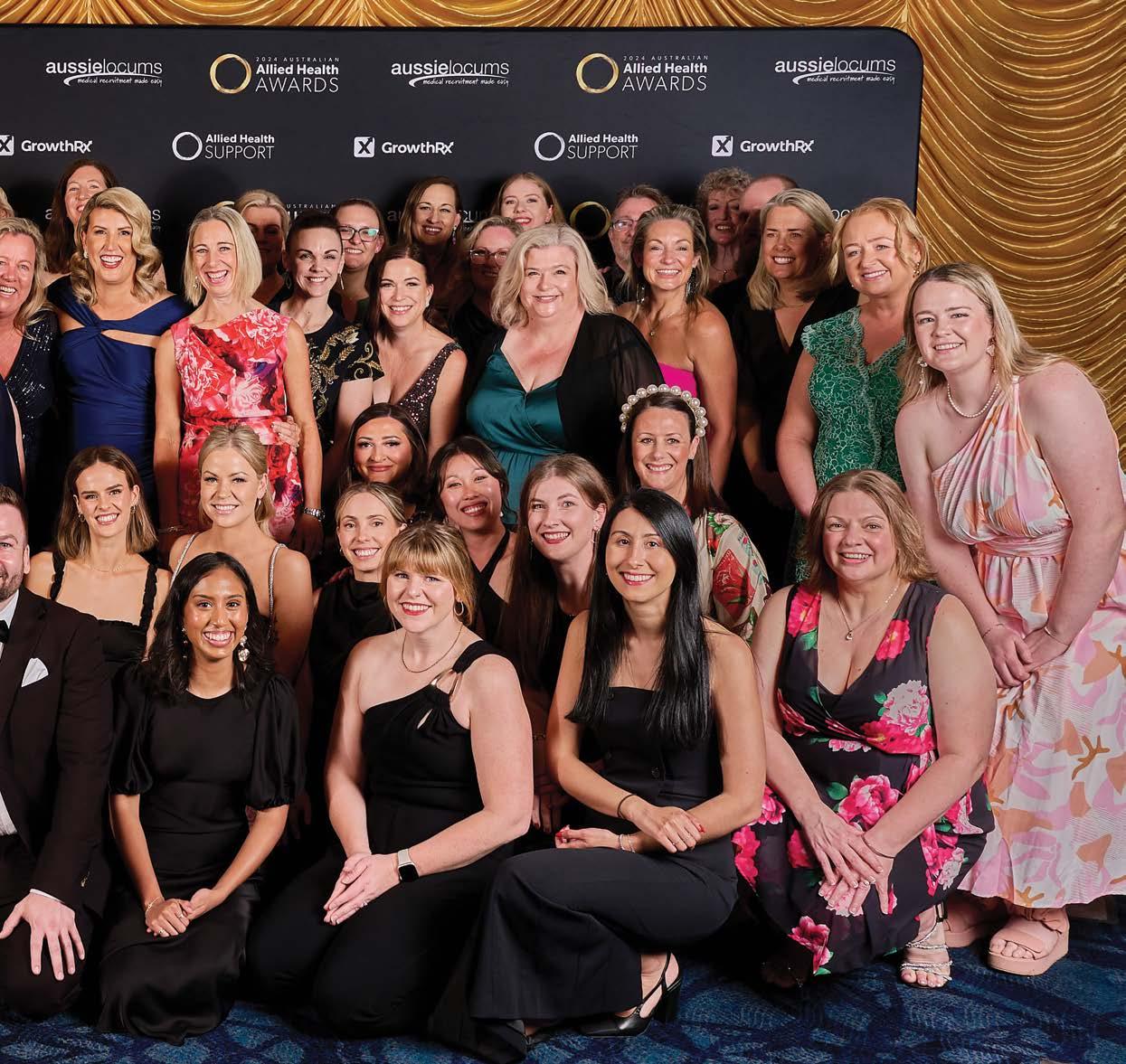


Alice, a senior physiotherapist and entrepreneur, is the driving force behind Empower Health & Physiotherapy and A Rehab Diary, both dedicated to patient-centered care and rehabilitation innovation. Her clinic has become a successful health hub, helping individuals regain mobility and improve their quality of life.
Complementing her clinic's success, Alice developed A Rehab Diary app, a cutting-edge digital platform that transforms how patients track and engage with their recovery. Inspired by her own experiences overcoming adversity, she recognized the need to integrate mental resilience into rehabilitation, addressing a critical gap in traditional approaches.
To expand her mission, Alice launched A Rehab Diary: The Series, a podcast that shares expert insights, inspiring stories, and education on resilience, health, and recovery. Passionate about holistic healthcare and technology, she is committed to redefining rehabilitation by ensuring it supports both body and mind. Her work is not only innovative—it’s creating real, lasting change in how recovery is approached.






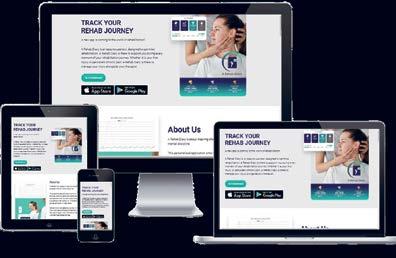


NEW TEAM CATEGORY

WINNER
THE TALBOT CENTRE
2024 ALLIED HEALTH TEAM CULTURE EXCELLENCE
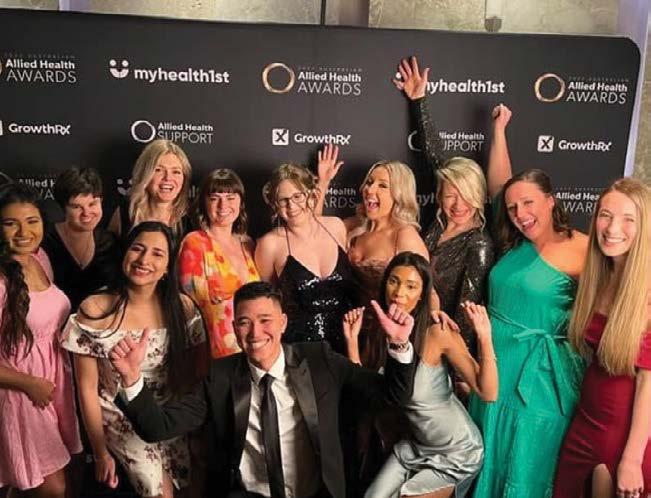
How did your team come together?
(Tell us your origin story!)
The story of The Talbot Centre started long before its doors officially opened in 2015. It began in the late 1980s with a curious little girl who asked her parents endless questions about people and the world around her. She loved learning, reading, and understanding others. She was taught from an early age that knowledge, wisdom, and understanding were responsibilities, not just privileges—and that the greatest purpose was using them for the benefit of others.
One pivotal experience in primary school debate club shaped her values forever. Despite her fear of public speaking, she stepped out of her comfort zone and used her voice to advocate for someone

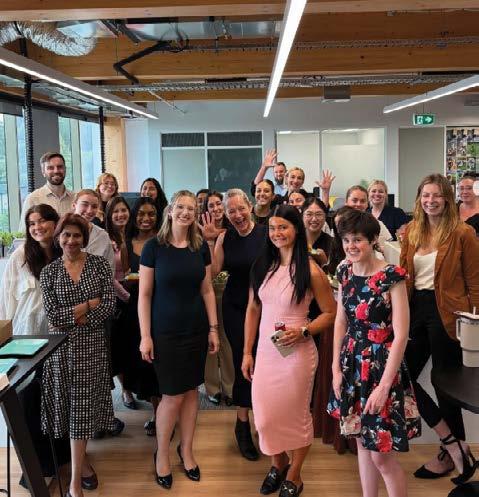
very different from herself. This moment ignited a deep conviction: belonging and community are fundamental to human worth.
As life unfolded, she pursued university studies. Psychology wasn’t the childhood dream – it was a suggestion from a family friend. But it sparked something in her. It allowed her to keep learning, turn knowledge into meaningful outcomes, and make a real difference.
The response was immediate. Within months, demand outgrew capacity. More clinicians joined, the team expanded, and by 2017, the practice had outgrown its space. It was time for a name that reflected the bigger vision. Dr Amy Talbot & Associates became The Talbot Centre – a place committed to truly integrated, person-centred care.

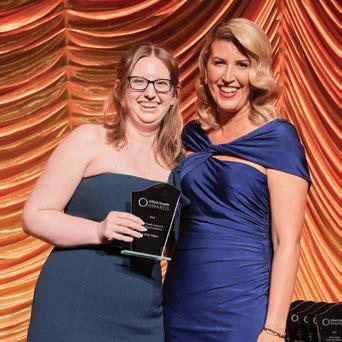
Her path through study and career was anything but linear. She had always imagined herself working in public health, never in private practice – certainly never running a business. But life had other plans. The public healthcare system was broken, and the moral injury of working within it became unbearable. She saw firsthand how bureaucracy often overshadowed people’s needs, making it difficult to deliver the kind of care she believed in.
So, in 2015, with no business training, no grand strategy – just a drive to do good work and surround herself with others who shared that vision – she took a leap of faith.
Dr Amy Talbot & Associates was born in a threeroom office in Q Central. Even then, the vision was clear:
Healthcare should be deeply human.
It should be built on relationships, not just systems. It should be about people, not bureaucracy.
It should be created together, not dictated from above.
From there, growth was rapid and purposeful. By 2023, The Talbot Centre had once again exceeded its capacity, leading to the move into a purpose-built facility, more than twice the size of the previous space. This expansion allowed the centre to broaden its services beyond psychology, integrating dietitians, speech pathologists, occupational therapists, paediatric specialists, and more – bringing the vision of truly personcentred, multidisciplinary care to life.
Today, The Talbot Centre stands as the largest mental and allied health service in the region, operating six days a week from 8 AM to 8 PM to offer greater flexibility and access to care. But more than its size, its true impact is in the lives it changes—in the clients who feel seen, heard, and supported, in the clinicians who find purpose and belonging, and in the growing movement to transform healthcare for the better.
Because from the very beginning, this was never just about building a business.
It was about reimagining what healthcare could –and should – be.
What was your team’s reaction when you found out you won? (Any fun or unexpected moments?)
Our team felt a deep sense of pride – pride in what we’ve intentionally built together over time. There was genuine joy and celebration, not just for the recognition itself, but for what it symbolised: that our commitment to creating a connected, valuesaligned, and supportive culture was visible and meaningful. People took time to share personal reflections and stories about what our culture has meant to them, and it sparked a lot of rich conversations about who we are as a team and how we want to keep showing up for each other and those we serve. It was a beautiful moment of pause and connection.

How has winning the award impacted your team? (Professionally and personally?)
Winning the award has reinforced our collective commitment to our values and deepened our sense of pride in the work we do. Professionally, it’s strengthened our reputation as a team that fosters a supportive, inclusive culture – both internally and within the allied health community. Personally, it’s given each of us a renewed sense of purpose and motivation, reminding us of the positive impact we can have not only on our clients but also on each other. It’s been a catalyst for even more open communication, a deeper commitment to selfcare, and a stronger connection to the shared vision that unites us.
What’s one thing your team does together that strengthens your bond? (Fun Friday traditions? Coffee catch-ups? Something unusual?)
One of the things that strengthens our bond most is how we make space for real, human moments in the midst of busy days – whether that’s impromptu coffee chats, shared laughter in the team room, or pausing to check in on each other beyond just work tasks. We also intentionally create space for reflective conversations – about our values,
the work we’re doing, and how we’re doing it together. It’s not flashy or structured, but it’s consistent, and it builds a deep sense of trust and connection that flows into how we care for each other and for our clients. And food, there is always lots of food in TTC kitchen, whether it be baked goods in our bake off competition or chocolate eggs from our Easter Egg hunt.
If someone spent a day with your team, what would surprise them the most?
They’d probably be surprised by how genuinely we all like each other – and how much that shapes the way we work. There’s a real sense of ease, warmth, and mutual respect in how we connect, whether we’re collaborating on complex clinical work or sharing a laugh over lunch. What might stand out most, though, is how integrated and cohesive our admin and clinical teams are. We don’t operate in silos; everyone plays a vital role in the client experience, and we show up as one team – with shared purpose, open communication, and a deep appreciation for each other’s contributions. It creates a workplace that feels both grounded and energising.

What’s one thing your team is doing to make a difference in the allied health community?
We’re actively contributing to a culture shift in allied health – one that places people, relationships, and epistemic humility at the centre of care. Whether it’s through the way we supervise, collaborate, or share knowledge, we’re committed to building a community of practice that values reflection, inclusivity, and evidence-based care that truly fits the person in front of us. We also invest in the development of early-career clinicians and in supporting peers across the sector, recognising that how we show up as a team has a ripple effect beyond our walls.
What’s a challenge in allied health that you think more people should talk about?
A key challenge in allied health is the fragmentation of care – both across disciplines and between different ways of knowing. Too often, services operate in silos, and the integration of perspectives – especially those of lived experience – is treated as optional rather than essential. We need more cohesive, collaborative models of care that value relational continuity, and
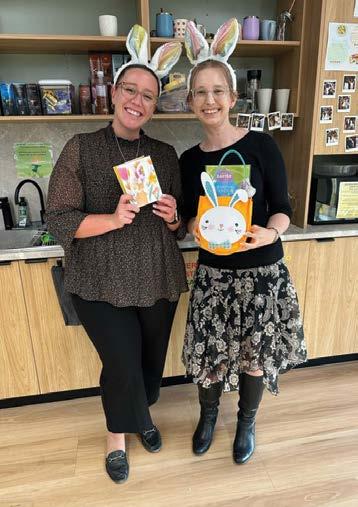
that recognise lived experience as a legitimate and vital form of evidence, alongside research and clinical expertise. When we bring those elements together meaningfully, care becomes more person-centred, culturally responsive, and impactful.
What advice would your team give to future nominees and winners of the Allied Health Awards? Stay anchored in your values and the “why” behind your work – recognition is meaningful, and at the same time the real impact happens in the everyday moments of care, collaboration, and connection. Take time to reflect on what you’ve built, and let the nomination be a chance to celebrate with your team and your community. Most of all, remember that these awards aren’t just about individuals or outcomes – they’re about the collective efforts of the allied health community that quietly but powerfully shape lives - it’s a huge privilege to be a part of something bigger.











What exciting projects or goals does your team have for 2025/2026?
We’re focused on deepening our impact –both within our service and across the broader allied health community. In 2025/2026, we’re continuing to grow intentionally, with an emphasis on team wellbeing, inclusive care, and service innovation. We are exploring technology enhancement and integration whilst maintaining our deeply human focus. We’re expanding our training and supervision programs, refining our client experience to be even more personcentred, and exploring new ways to share knowledge and support across disciplines. It’s about building something sustainable, valuesaligned, and impactful – not just for now, but for the long term.
Do you have any additional thoughts or reflections on your experience as an award-winning team?
Being recognised as an award-winning team is a reminder of the incredible people we work alongside every day. It’s not just about the recognition itself, but about how it highlights the collective effort we put into creating a supportive, inclusive, and compassionate culture. We’re deeply grateful for the opportunity to reflect on what we’ve built and where we want to go, but most of all, we’re humbled by the opportunity to continue learning and growing together. This award is as much about the journey ahead as
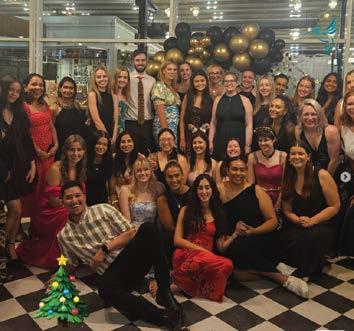

it is about the hard work already done. Thank you Sarena and the Allied Health Awards for the opportunity to reflect on this together and for the recognition of the work we have done to date in pioneering innovation and transforming the experience of healthcare for healthcare workers as well as the community.
How can we connect with you?

thetalbotcentre

thetalbotcentre

thetalbotcentre.com.au


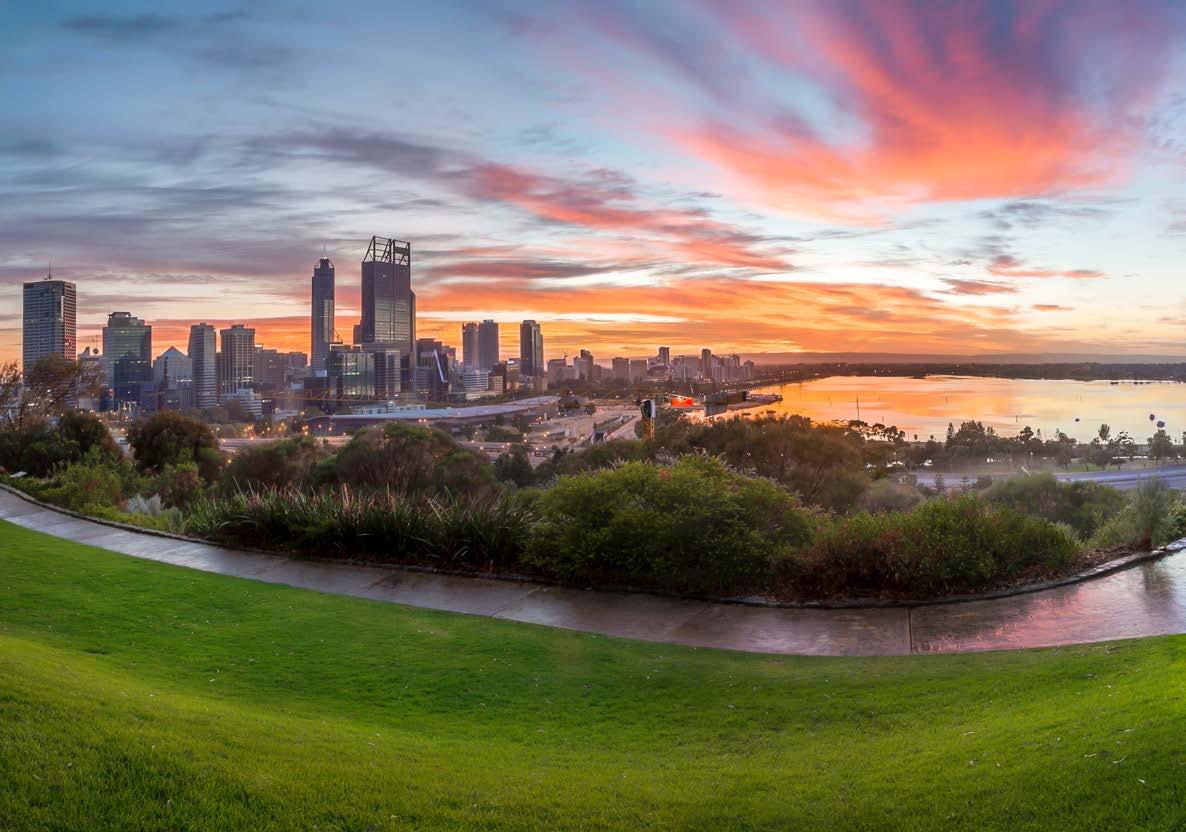
IN THE KNOW AGED CARE ACT REFORMS
DELAYED TO NOVEMBER 2025
The Australian Government has officially pushed back the start date of the new Aged Care Act from 1 July 2025 to 1 November 2025.
Originally set to commence mid-year, the delay follows sector feedback requesting more time to adjust to the extensive legislative and operational changes. The four-month extension aims to give aged care providers, peak bodies, and consumers additional time to prepare for the new requirements and standards.
“We welcome the delay—it gives everyone more breathing room to get this right,” one industry advocate shared via ARATA.
The Department of Health and Aged Care confirmed that the extra time will support smoother implementation of:
• New provider responsibilities and safeguards
• Updated rights-based framework for older Australians
• Revised quality standards and compliance mechanisms
STAY CONNECTED WITH YOUR PROFESSIONAL ASSOCIATION OR NATIONAL BODY AND REACH OUT FOR SUPPORT AND ADVOCACY.

WE NEED TO STAND UP AND SUPPORT EACH OTHER!
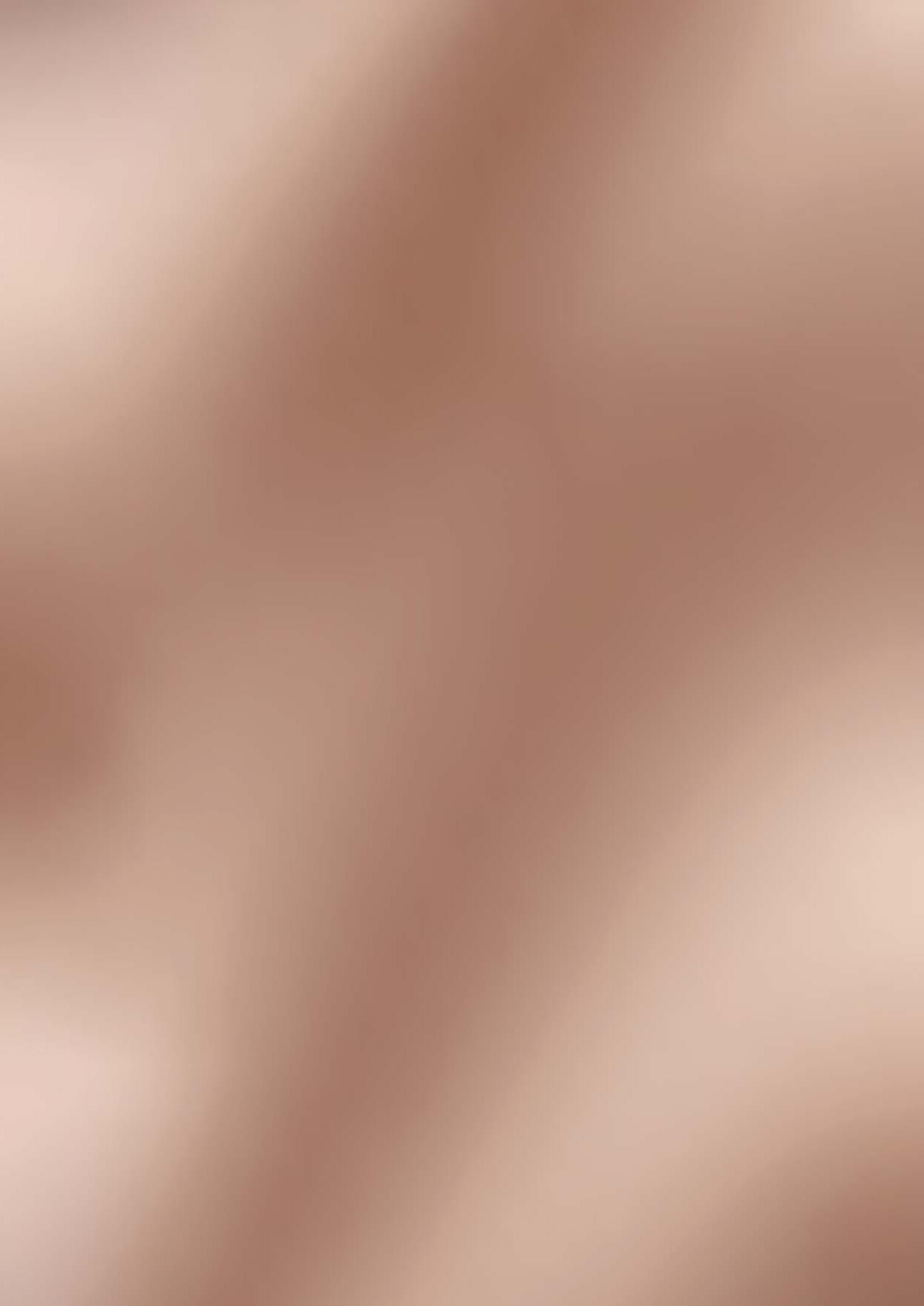
NDIS REFORMS: WHAT YOU NEED TO KNOW FROM 1 JULY 2025
Significant changes are coming to the National Disability Insurance Scheme (NDIS) from 1 July 2025, affecting how services are delivered, invoiced, and monitored. These reforms aim to strengthen safeguards, streamline funding processes, and ensure greater clarity for participants, providers, and coordinators.
Mandatory Provider Registration
From 1 July, Support Coordinators, Supported Independent Living (SIL) providers, and Platform Providers will be required to register with the NDIS Quality and Safeguards Commission. This measure enhances participant protection and aligns with broader system reforms.
Price Indexation
Annual price limits for supports will be adjusted to reflect award wage increases and cost changes. Participants can expect automatic updates to plan budgets between 10–13 July to match the new pricing structure.
Shift to PACE Planning & Funding Periods
All new and reassessed plans will transition to the PACE (Participant-Centered Engagement) system. This introduces:
• Funding by goal (e.g., daily living, employment, community access)
• Scheduled release of budgets in periods (monthly or quarterly)
• Claiming windows of 90 days for support within each funding period
This approach offers clearer plan structures but will require providers and plan managers to update invoicing and support agreements.
Clarified Support Definitions & Documentation
Only supports directly related to a participant’s permanent impairment will be considered eligible. The changes also tighten invoicing compliance, linking claims more closely to specific goals and funding components.
Why It Matters
These reforms will improve transparency, align funding with participant goals, and reduce misuse. However, they also require providers, coordinators, and plan managers to update documentation practices, review agreements, and ensure systems are aligned with the new PACE structure.
PRICE REDUCTIONS RECOMMENDED
There are price reductions recommended for several allied health professions, for example, Physio, Dietetics, Podiatry, so it is important to stay up to date.
INVOICING FOR TRAVEL TO CLIENTS
Big changes are also anticipated to how allied health can invoice for travel to clients.
WINNER
GIDGET FOUNDATION AUSTRALIA – WORKFORCE DEVELOPMENT
TEAM
2024 ALLIED HEALTH INNOVATIVE PRODUCT EXCELLENCE
How did your team come together?
(Tell us your origin story!)
The inception of the Workforce Development Program at Gidget Foundation is a testament to the power of insightful conversations and determined vision. The program’s origins can be traced back to a meeting in 2021 between our CEO and Special Projects Director during a flight. As the plane soared above the clouds, so did their ideas on how to bolster our perinatal workforce and enhance the quality of mental health care services.
During this pivotal conversation, they discussed the pressing need to increase our perinatal workforce to meet the growing demand for mental health services. It was in this moment of clarity that the idea for the Workforce Development Program was conceived.
The vision was simple yet profound: to create a program that would not only build our workforce but also ensure that clinical excellence was achieved through robust professional development and supervision. The program would be designed to provide mental health professionals with the necessary support and training, while they maintained a manageable caseload of clients. This approach allowed for focused, high-quality care and professional growth.
Upon landing, the conversation continued and Gidget Foundation’s Clinical Team began outlining the framework of the Workforce Development Program. They envisioned a structured system where mental health professionals could receive continuous education, mentorship, and supervision. This system was pivotal in developing a workforce capable of delivering exceptional mental health care.
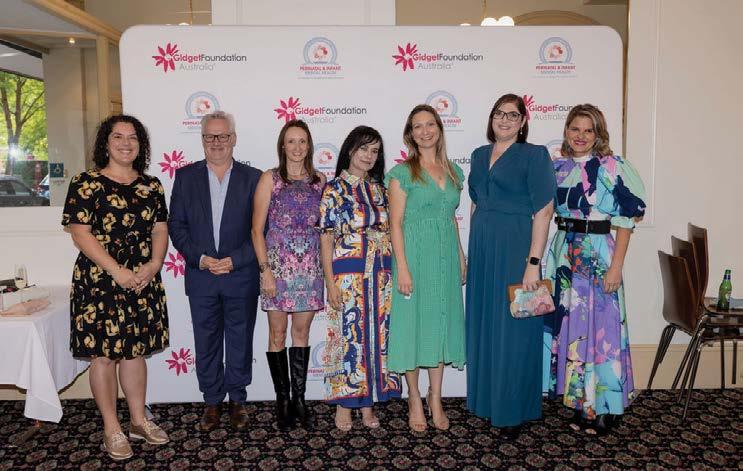
What was your team’s reaction when you found out you won? (Any fun or unexpected moments?)
Ecstatic, to say the least! As this award was one of the last awards announced, I was torn whether to contact the team at 11pm! I sent one or two messages but as soon as dawn broke, I was calling everyone to let them know. Everyone was thrilled at the outcome and we felt very privileged to have won the award in such an influential category.
How has winning the award impacted your team? (Professionally and personally?)
Our growth and development has continued and we have developed relationships along with the way with other stakeholders. It has also led to the expansion of our team as our program continues to grow and develop. It has opened up opportunities that we never thought were possible!

second cohort are halfway through and we will bring on a third cohort in July 2025.
What’s one thing your team does together that strengthens your bond? (Fun Friday traditions? Coffee catch-ups? Something unusual?)
Regular meetings with the team encourage feedback and engagement. There are so many people who have contributed to this program along the way and we are grateful for every one of them and their dedication to the development and delivery of this program.
What’s one thing your team is doing to make a difference in the allied health community?

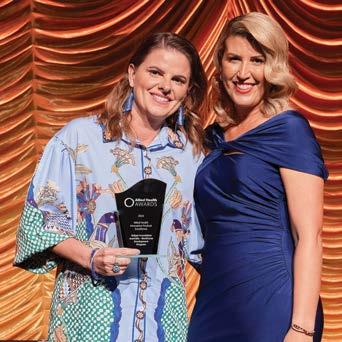
Has winning the award helped with team recognition, funding, or new opportunities?
Yes
What has been your team’s biggest achievement since winning? (A proud moment!)
The accreditation of our program as a Graduate Diploma in Perinatal Mental Health through Federation University has been a significant highlight for us. Working alongside Federation University, with our co-designed and co-delivered program, has been a privilege and we are excited to see our first cohort since the program accreditation, graduate from the inaugural course in July this year. As we celebrate this cohort, our
The Workforce Development team endeavours to collaborate with the allied health community to achieve positive outcomes for all clients. The program engages a range of mental health professionals across various disciplines who inform clinical practice and offer diverse and valued professional perspectives on perinatal mental health care. The considered engagement of senior clinical supervisors has also been instrumental in creating content for the program, drawing upon a range of theoretical perspectives, experience, and evidence-based research, to provide the workforce clinicians with a vast array of knowledge and skills to learn from.
Gidget Foundation Australia will continue to remain engaged with the allied health community to ensure it remains up to date with professional accreditation requirements for continuing professional education. By consistently ensure
that training and professional development aligns with ongoing accreditation requirements within relevant professional bodies, the program fulfills the dual purpose of professional training, and CPD compliance.

Describe your team in three words.

What’s a challenge in allied health that you think more people should talk about?
The cost of living is at an all-time high, so the requirement for allied health professionals to meet continuing profession development (CPD) through supervision and professional development remains tough. The benefits of the Workforce Development Program/Graduate Diploma are that it is delivered at no cost to the clinician, which further reduces the financial burden on the allied health workforce.
What advice would your team give to future nominees and winners of the Allied Health Awards?
Do it!! It is such a great opportunity and will benefit yourself, your colleagues and your organisation.
What exciting projects or goals does your team have for 2025/2026?
We continue to grow our workforce and continue to receive a high level of interest from the allied health community to join our program. We are looking forward to continuing to deliver this program well into the future and create additional pathways for allied health professionals to work at Gidget Foundation Australia.
If your team could collaborate with any group or person in allied health, who would it be and why?
We get the privilege of collaborating with superstars everyday. From stakeholders to health services, to our staff, our CEO, management, the workforce development team and our program participants. We continue to be impressed with the amazing workforce participants on our program - they are the real heros.
Do you have any additional thoughts or reflections on your experience as an award-winning team?
It’s been a privilege winning this award and we look forward to attending many more Allied Health Awards in the future.
How can we connect with you?

Eliza@blackbirdcounselling.com.au











ONE OF THE GIDGET HOUSES

How did your team come together?
(Tell us your origin story!)
The School of Allied Health Science and Practice was established in 2020, with our first cohort of students commencing studies in February 2021. The initiative was part of the university’s strategic expansion into allied health education, complementing its existing strengths in medicine, dentistry, nursing, and public health.
We offer undergraduate honours degrees in Physiotherapy, Occupational Therapy, and Speech Pathology. The programs were developed to address the growing demand for allied health professionals and to provide students with comprehensive, evidence-based education. Our students benefit from state-of-the-art facilities, including simulation environments and clinical placements, ensuring they are well-prepared for professional practice. An area we are very proud of is our integrated programmatic approach to Interpofessional Learning.
Professor Rachel Gibson was the inaugural Head of School with Associate Professor Stacie Attrill the current Head of School. Associate Professor Emma George is the lead for OT, Associate Professor Paul Rothmore the lead for PT, Ms Lucy Farrar the lead for SP , and Associate Professor Charles Marley the lead for IPL.
In your experience, what makes an allied health team truly effective?
A combination of clear communication, mutual respect, and shared goals. We understand each other’s roles and appreciate what each of us brings to the team, fostering a collaborative environment. Open dialogue and trust are important for dealing with challenges. Strong leadership supports this promoting a diversity of views and approaches to be considered. Equally important is that once a decision is made, the team get behind it. Continuous learning and ensuring efforts are aligned with the overarching mission of the school is a final part of the puzzle. What are some of the biggest benefits patients receive from multidisciplinary teamwork and what barriers can sometimes get in the way?
In short, multidisciplinary teamwork offer patients comprehensive, coordinated care by bringing together professionals from various specialties. True collaboration addresses the full spectrum of a patient’s needs—physical, emotional, and social— leading to improved health outcomes, reduced hospital admissions, and enhanced patient satisfaction. No one profession can manage all this together, collaboration is a necessity if healthcare is to be truly holistic.
INTRODUCING
School of Allied Health Science and Practice

Can you share a moment or story where collaboration between allied health professionals made a meaningful impact?
At the School of Allied Health Science and Practice, we set out to build more than just individual AH curriculums—we aimed to build a culture of interprofessionalism. From the outset, our goal was to graduate clinicians who are not only proficient in their individual disciplines but who can work collaboratively, think systemically, and engage meaningfully across professional boundaries.
To achieve this, we embedded interprofessional learning programmatically—integrating shared learning outcomes, case-based teaching, and joint assessment tasks across the physiotherapy, occupational therapy, and speech pathology programs. Rather than isolating IPL to standalone modules, we wove it through the curriculum. Students learn with, from, and about each other in shared classrooms, and importantly from mixed professional teaching teams.
Our team model this ethos in practice. Teaching teams are interprofessional by design, research projects are co-led across disciplines, and course development is a shared endeavor. This commitment to working together has shaped not only how we teach, but how we lead, solve problems, and generate knowledge. In doing so, our school has become a living example of the interprofessional principles we instill in our students.
How do allied health professionals typically complement one another in a team setting?
Each profession brings distinct yet complementary expertise that, when integrated, delivers holistic, person-centered care. Our disciplines work collaboratively toward shared goals—such as promoting recovery, independence, and quality of life—while addressing different facets of a person’s health. For example, in stroke rehab, the physiotherapist may support mobility, the occupational therapist daily functioning, and the speech pathologist communication and swallowing—ensuring no aspect of the patient’s needs is overlooked.
Coordinated this approach allows for efficient care planning, avoids duplication, and ensures interventions are aligned and mutually reinforcing. If the team have regular team communication, they can adapt care in response to changing needs and build on each other’s observations and insights. An important side effect of collaboration is that it can foster a deeper understanding and respect for each other’s roles, enabling more creative problem-solving and more effective outcomes. Basically, working collaboratively leads to better outcomes and more empowered patients.
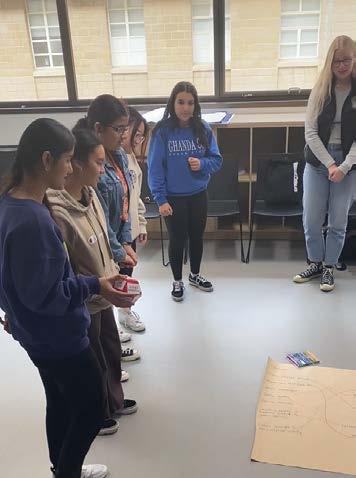
What advice would you give to clinics or services just starting to build a collaborative allied health model?
Start with a shared vision centered on holistic, patient-focused care. Clear but flexible role definitions will help the team understand how they complement others in the team, while structured communication—i.e., regular team meetings and shared care plans—ensures coordination. Leadership is key for modelling interprofessional

Describe your team in three
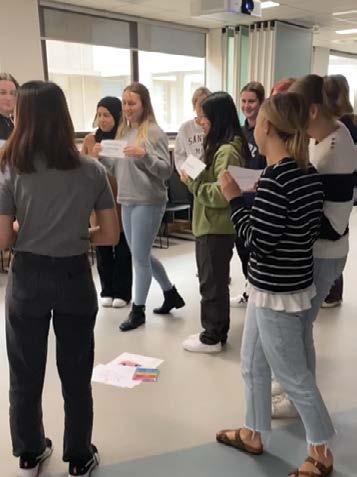
values and fostering psychological safety, where all voices are heard. Investing in joint interprofessional training builds mutual respect and a common language. Ultimately, collaboration must be embedded in both culture and practice to succeed and continuous feedback from staff and patients will ensure it remains responsive and effective.
What’s one thing your team is doing to make a difference in the allied health community?
As noted earlier, we are particularly proud of our approach to interprofessional learning, which we believe plays a critical role in preparing students for future collaborative practice. Our teaching and research teams are genuinely multidisciplinary, drawing expertise not only from physiotherapy, occupational therapy, and speech pathology, but also from a range of allied and non-allied health disciplines. We have seen firsthand the benefits of breaking down disciplinary siloes—not only in enhancing the quality and depth of our teaching, but also in the richness and relevance of the research we are producing. This emerging body of interdisciplinary knowledge holds significant potential to advance allied health practice and improve outcomes for patients and communities.
Have you seen any emerging models, tech, or systems that support stronger team-based care?
Yes, our integrated, programmatic approach to interprofessional learning allows it to be embedded within existing course content, ensuring that essential disciplinary knowledge is preserved. We have incorporated core IPL competencies across multiple areas of the three programs, progressively building on these through intentional links between courses and year levels. This scaffolded approach enables students to develop the competencies required for effective interprofessional collaborative practice in a gradual and contextually relevant way. By aligning IPL with disciplinary learning, students come to understand the real-world importance of collaboration and how it enhances— not replaces—their professional expertise. What role do leadership or shared values play in keeping a team aligned and effective?
Leadership—whether formal or distributed—sets the tone for effective collaboration. Strong leaders model respectful communication, reinforce role clarity, promote psychological safety, and ensure all team members feel heard and valued. They help navigate conflict, maintain focus on shared goals, and create space for reflection and continuous improvement. Leadership should also be collaborative, with representation from multiple disciplines working together as an executive or leadership group. This approach reinforces the interprofessional ethos and supports the broader team to function cohesively and collaboratively.
Why is it valuable to celebrate and recognise allied health teams, especially given the challenges they navigate in their day-to-day work?
It’s vital because it affirms the essential, often complex work they do to support patient care across diverse settings. They often navigate daily challenges—ranging from high caseloads and limited resources to complex patient needs and systemic barriers—while delivering care that is person-centered, collaborative, and outcomedriven. Recognition reinforces the value of their contributions, boosts morale, and helps prevent burnout by reminding everyone that their efforts are seen and appreciated. It also strengthens team cohesion, promotes a culture of respect, and supports retention in a workforce where emotional labour and interprofessional demands are high. It also helps raise the profile of AH within the broader health system—highlighting the impact of disciplines that can be overlooked despite their central role in recovery, rehabilitation, and prevention.
What do you hope the future of allied health teamwork looks like, and what changes would you like to see in the years ahead?
I hope the future of allied health teamwork moves beyond traditional hierarchies and professional silos toward more fluid, relational, and socially responsive models of care. We need to recognise that health is not simply a clinical outcome, but a lived, social experience shaped by power, culture, and context. Allied health teamwork needs also be reimagined—not just as cooperation between professions, but as a collective, critical practice rooted in care, equity, and responsiveness to communities.
Involving more co-produced approaches with patients and communities would emphasise the value of lived experience as much as professional expertise. Teamwork could extend beyond the clinic—embedding allied health professionals in schools, housing systems, and justice settings to work upstream and intervene earlier. Professional boundaries could soften, enabling more meaningful collaborations not only within allied health but across disciplines, including the arts, social sciences, and Indigenous knowledges. To get there, we need to challenge the dominance of biomedical logics, embrace critical and reflexive practice, and train future clinicians not just in competencies, but in ethics, cultural humility, and social imagination. The allied health team of the future must be as diverse, adaptable, and relational as the communities it serves.

Any parting wisdom or message for other teams in the field today?
Health care is not just about fixing bodies—it’s about engaging with lives, relationships, and the broader social conditions that shape them. Invest in your relationships. Make space for difficult conversations, for critical thinking, and for reimagining what care could look like.
How can we connect with you?

charles.marley@adelaide.edu.au
TESS CRAWLEY
LEADERSHIP & MANAGEMENT EXCELLENCE



Which award have you recently won and what does it mean to you?
Winning the Leadership & Management Excellence Award has come at a particularly poignant time for me. Following some illnesses in 2022 (and cognitively challenging perimenopause symptoms) I took a break from more intensive business coaching, finally returning to it earlier this year. Upon my return to coaching I found myself initially struggling with the same mindset worries that many of my clients battle, specifically self-doubt around ‘am I relevant’. So this award was both a reminder of all I’ve achieved in my career (through completing the nomination forms) and that my work is relevant across allied health professions. The latter is important to me, as I’ve worked hard both in my practice and in my business coaching to demonstrate respect for all mental health professions, rather than hiding within a psychology-specific silo.
Where do you currently work and what is your role?
As well as being a private practice business coach, I’m also the founder and director of The Crawley Clinic. We have offices in Hobart (where I’m based), Launceston (where I was born), and Melbourne (where I lived through the covid years).
If you were asked to, what specific topic do you think you could give a 1 hour presentation on without any preparation??
Aligning fee structures to organisational structure (based on clinician experience) rather than type of
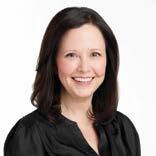

Finalists
qualification or Medicare rebate.
What is your favourite thing about your chosen allied health profession?
I was drawn to psychology through a love for crime fiction (reading and writing) as a young adult. As a psychologist I’ve been able to work within government and university settings, in prisons, and in my own business. Now I’m writing crime fiction again, with the professional side of my life affording me the time to do so.
What’s a moment in your career that completely changed how you see your profession?
When I first realised how much I would have benefited from my own business coach if only they’d existed when I started my business ownership journey. We’re not taught this stuff (business ownership) when we study psychology at uni.
If you could swap jobs with anyone for a day, who would it be and why?
Enid Blyton (Famous Five) and Agatha Christie triggered my interest in crime fiction when I was a kid, which in turn eventually led to me becoming a psychologist. I’d love to live inside either of their minds for a day.
What’s the funniest or most heartwarming thing that’s happened to you while working in allied health?
Earning the nickname Clarice (after Clarice Starling in the Silence of the Lambs) after an inmate asked if I was scared of him when I worked in a prison. He was the most unscary character I’d come across.
What is your professional philosophy or motto?
Don’t let critics dictate your choices.
What advice would you give your younger self?
Don’t be scared of not ‘looking the part’ of a psychologist. My biggest regret is giving up acting when I started studying psychology at 25. I was so worried that it wouldn’t seem ‘professional’. So, in hindsight I would have kept my creative life (acting and writing) going while I built my psychology career.
If you could have any superpower, what would you choose?
To slow down time.
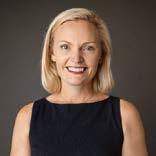

If you could invent one tool or piece of technology to improve allied health care, what would it be?
The Medicare Demystifier.
What’s a skill you’ve learned in your profession that surprises people?
Definitely NOT the ability to read minds.
How do you relax? What are your self-care strategies?
Writing, watching movies, spending time with my kids.
Tell us something interesting or quirky about you! Hidden talents?
I’ve written a dystopian novel for young adults, set on a mountain top in Tasmania. I’m currently writing a murder mystery novel for young adults, set on a farm in Tasmania.
What are you currently bingeing? Movies, TV shows, books, podcasts?
I’m always listening to something. The list is way too long. Australian novels (especially young adult fiction or crime fiction). Podcasts such as Uncanny (ghost stories) and Happy, Sad, Confused (movies). Bingeing ‘Only Murders in the Building’ and ‘Agatha All Along’ and all of the Walking Dead series. Music - Florence and the Machine and lots of old stuff (Bowie, Pink Floyd, Supertramp, jazz, classical, you name it).
If your profession was a movie, who would play you? Geena Davis (a la Long Kiss Goodnight badassery).
What’s one thing you do every day that keeps you energised and inspired?
Being present for my kids before and after school. What is your very favourite place?
My bed. Or the east coast of Tasmania. Or Japan. What are you not so good at, or what are you working on, in yourself?
Staying focussed. Worse since perimenopause (although HRT is helping). Writing is the exception to this rule. Once I’m on a roll I’m uninterruptible.
What do you love about yourself? What are you really proud of?
My values around kindness. I’m no pushover, and I set hard boundaries, but I base all of that within the bounds of still being kind. (Not that
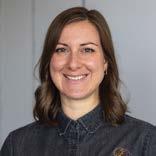

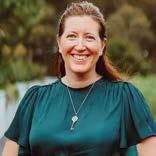
DR CLAIR LAWSON, HELEN WHAIT, HEATHER PEARCE, NICOLE FRENCH, NATALIE OLIVERI, BELINDA HARRIS, SARAH COLLISON

those experiencing the boundaries necessarily appreciate that!).
Which three words best describe your approach to patient care?

If you could have dinner with any allied health professional (alive or from history), who would it be and what would you ask them?
My business bestie Gerda Muller. We live at opposite ends of the country and spend anywhere near enough time in the same place. I’d ask her to write a book with me. (Really, I must do that!)
What’s the best piece of advice a patient or client has ever given you?
Podcast and book recommendations. Most recently a client recommended Invisible Women. What’s a hobby or interest you have that no one would expect?
Singing. Knitting.
What’s one thing about your job that people would find surprising or unexpected?
Most people think private practice owners earn much more money than they do. I’m no exception.
If you could go back to the start of your career, what’s one thing you’d do differently?
Get a business coach. Keep acting.
What’s a little-known fact about allied health that you think more people should know? We’re fallible humans too.
How do you celebrate big wins in your career?
A nice dinner with my family.
What’s the best lesson you’ve learned from a colleague or mentor?
You can’t sell a secret. Marketing solves most money problems in private practice.
What’s one misconception about allied health that you wish you could change?
That we’ve all got our shit together.
If you could create an award category that doesn’t exist yet, what would it be for?
Practice Manager of the Year.
What’s your ultimate comfort food after a long day in your profession?
Ice cream.
What’s in store for you in 2025? What’s next for you? Any projects?
Expanding my business coaching offerings. Consolidating recent changes within my private practice. Writing more novels (and getting an agent and a publishing deal!)
What is your vision for Allied Health in Australia? More unity, less squabbling (especially within psychology).
How can we connect with you?

tess.crawley@gmail.com

0417 394 454

2024 PSYCHOLOGIST OF THE YEAR



Which award have you recently won and what does it mean to you?
Well it has to be this one! It was incredibly humbling, and I certainly didn’t expect to win among so many fine nominees. So much so I didn’t even prepare a speech (though this could have also been my expert-level procrastination). The journey hasn’t been easy, and I suppose it meant that perseverance, grit, and hard work
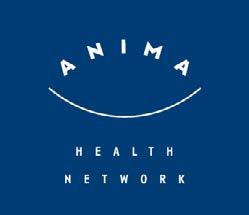
really do pay off. It also helped me reflect on all of the wonderful people who I was fortunate to have (and still do) help me grow personally and professionally. I couldn’t have done it without them!
Where do you currently work and what is your role?
I am a Clinical Psychologist, and the Director of a Clinical and Neuropsychology practice called ANIMA Health Network in Western Australia.
If you were asked to, what specific topic do you think you could give a 1 hour presentation on without any preparation??
I think I could probably wrangle together a presentation on the intersection between ADHD and complex trauma, I could also give a talk on schema therapy and assessment using tools like the YSQ-R which was developed during my PhD. What is your favourite thing about your chosen allied
If you could swap jobs with anyone for a day, who would it be and why?
The obvious answer is Indiana Jones.
I mean, who would love to be an archeologist, go on adventures around the world in search of priceless relics and fight bad guys with a whip?
What’s the funniest or most heartwarming thing that’s happened to you while working in allied health?
The first thing that came to mind was introducing Hachi to our team. Hachi is our small (haha jokes, he is about 45 kgs) therapy dog who just loves humans! Seeing how his antics and beautiful nature disarm patients is magical.
What is your professional philosophy or motto?
Be gentle with yourself.
What advice would you give your younger self?
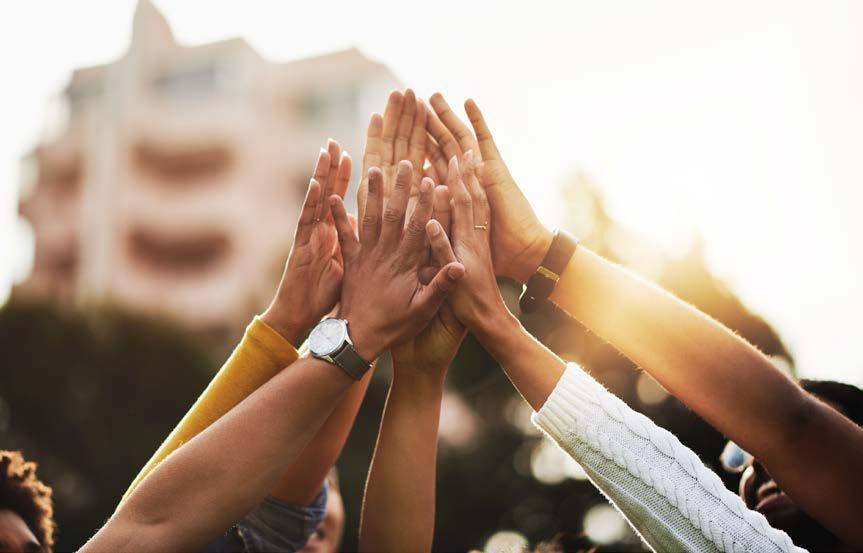
Empowering Neurodivergent Professionals to Thrive
Are you a professional with ADHD, or an organisation supporting neurodivergent team members?
The SNAP Program is a personalised, *5-session journey designed to help ADHD professionals harness their strengths and navigate challenges with confidence.
*Sessions will be conducted online via MS Teams
Program Details
Format: 5 x 50 min online sessions (or face to face in WA)
Who: Professionals
Access: Individuals or Organisations


triggers, family dynamics, diagnostic impressions etc becomes easier. The surprise bit is when a registrar says, “How could you possibly know all of that from a one-sentence description of a person!?”, to which I reply, “You too will get there young Padawan” haha.
How do you relax? What are your self-care strategies?
I build stuff! I love doing home renovations and getting lost in a process, whether building a patio, or something less complex, it is one of the rare times I am not bombarded with a thousand thoughts, ideas, to-do lists, etc. I love getting lost in the process until of course, I have to make my fourth trip to Bunnings in as many hours haha.
Tell us something interesting or quirky about you! Hidden talents?
I can do the social and public-facing stuff like webinars, talks, and workshops etc, but I don’t really like small talk.
What are you currently bingeing? Movies, TV shows, books, podcasts?
I just finished watching Reacher and am currently watching The Bondsman. Great shows! The
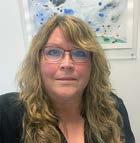

I am
Selves of Trauma Survivors” by Janina Fisher and I am reading “The Choice of Hercules” by A.C Grayling. Nerd alert!
What’s one thing you do every day that keeps you energised and inspired?
F-45 baby! I also try to spend a few moments every morning reflecting on what I am grateful for.
What is your very favourite place?
Canada! What a beautiful country. If you haven’t been, you must. They also have Poutine.
What are you not so good at, or what are you working on, in yourself?
Sometimes, I need to listen more and speak less. What do you love about yourself? What are you really proud of?
I love that I call a spade a spade and say things as they are. Sometimes, this is not so helpful, but ultimately, it is a good thing as I always like to know where I stand with others. I’m really proud of this guy for never putting down the tools and giving up.
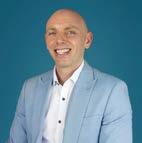
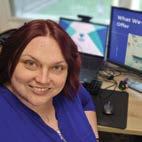

Which three words best describe your approach to patient care?

Compassionate, always curious, grounded.
What’s a hobby or interest you have that no one would expect?
Like I mentioned before, I like building and fixing stuff, so much so that some of my friends call me Bob.
If you could go back to the start of your career, what’s one thing you’d do differently?
Stop stressing so much about needing to get things right all the time.
How do you celebrate big wins in your career?
Eating great food and drinking good wine with people I love.
What’s the best lesson you’ve learned from a colleague or mentor?
Trust your instincts.
If you had to describe your year in three emojis, which would you choose?

If you could create an award category that doesn’t exist yet, what would it be for?
Legend of the Year, but that would mean Sarena would win it every year, so maybe not haha
What’s your ultimate comfort food after a long day in your profession?
That would have to be single malt whiskey. What’s in store for you in 2025? What’s next for you? Any projects?
I have the great honour of presenting at several conferences around Australia and one in Europe. Very excited!
What is your vision for Allied Health in Australia?
That we have a well-connected ecosystem that draws on each area’s expertise and specialisations for more comprehensive wrap-around care for our patients.
How can we connect with you?


oyalcin@anima.com.au 0499 621 760
Finalists
HELEN KILLMIER, DR. AARON FROST, BRAD BOWEN, DANIELLE GRABER, DR. TESS CRAWLEY
audiobook
listening to is “Healing the Fragmented
2024 OSTEOPATH OF THE YEAR


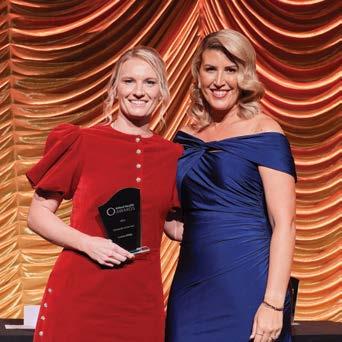
Which award have you recently won and what does it mean to you?
I was honoured to receive the 2024 Australian Allied Health Awards’ Osteopath of the Year. It recognised not just my work in general practice, sports osteopathy, and the outreach programs built across the Mallee to ensure access to care in rural and local communities, but also the value of osteopathy within the broader allied health and sports medicine industries.
It’s an honour, a validation of years of service, but more importantly, it’s momentum for change and future innovation. It’s a reflection of the people, places, and programs I’ve been privileged to build and lead, and of the incredible mentors and educators who’ve supported me along the way.
Where do you currently work and what is your role?
I’m the Founder and Director of Central Mallee Health, Central Mallee Fitness, Outreach Osteo, and Osteo Sports Network. I lead a team of osteopaths and allied health professionals across 40,000 square kilometres of northern Victoria, with a mission to make healthcare accessible to all our Mallee communities. I also serve as an Advanced Sports Osteopath and mentor future leaders in rural health and sport. I am the current Vice Chair for Sports Medicine Australia’s Victorian State Council.
If you were asked to, what specific topic do you think you could give a 1 hour presentation on without any preparation??
How to build a future-focused career in sports osteopathy or rural health.

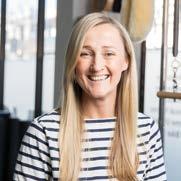
What is your favourite thing about your chosen allied health profession? Connection.
The power of human connection. Whether it’s oneon-one with a patient, mentoring a team member, supporting whole teams, or networking across industries, it’s where the real magic happens. What’s a moment in your career that completely changed how you see your profession?
The first time I ran an outreach osteo clinic in a tiny rural town with no healthcare access. Seeing three generations of the same family in one day. It makes you realise how deeply healthcare impacts the fabric of a community and how crucial our role is beyond the treatment room. A gratitude that reminds you of why you do what you do.
If you could swap jobs with anyone for a day, who would it be and why?
Oprah Winfrey.
She’s the ultimate example of conscious, purposeled leadership at scale. She’s built an empire by asking the right questions, creating space for others to be seen, and leading with both heart and impact.
To swap jobs with Oprah for a day would be like standing in the intersection of media, leadership, healing, and influence. All the things I care about. I’d love to experience how she holds space, makes decisions, and uplifts voices that change the world.
What’s the funniest or most heartwarming thing that’s happened to you while working in allied health?
During COVID we were able to continue as “essential workers” so we made a pivot and took the clinic on the road. The birth of Outreach Osteo with my team, but really a rebirth of what I had started in the Mallee from the beginning as a 22-year-old.
Fast forward 10 years, I was in a rural community that I had not serviced before and was seeing a 10-year client close to his home. He had been one of the only clients to consistently travel to see me, and had followed me through every location. I had him face down on the table in this remote township, when I got a call from the CEO of Osteopathy Australia notifying me that I had become Australia’s first Advanced Sports Osteopath. As I hung up the phone, he said how

proud he felt to have been able to catch that conversation and privileged to share that moment with me. His voice was breaking.
He died a few short months later of a brain tumour we both knew about. I have a lovely photo of us in our farm gear that day, and I think about it often. My clients have been some of the most loyal supporters of my career and are the driving force behind why I do what I do.
What is your professional philosophy or motto?
Go where you’re needed, stay where you matter, and lead like it’s contagious. It’s how I choose to work, mentor, and build. With impact, energy, and intention.
It’s not always what you say and do, but how you leave people feeling that becomes your trademark.
What advice would you give your younger self?
Don’t wait for permission. Back yourself earlier. The things that make you different now are exactly what make you powerful later. Trust your instincts and your gut, go where you’re needed, and don’t dim your energy for anyone. Charge the room with it instead.
If you could have any superpower, what would you choose?
The ability to teleport.
I’d love to finish a clinic shift in Swan Hill and instantly appear at the evening seminar 4 hours away in Melbourne that I drive every week, or do rural outreach and be home early for dinner. It’s the one thing I haven’t figured out how to optimise - time and travel.
If you could invent one tool or piece of technology to improve allied health care, what would it be?
A fully integrated rural health platform that connects practitioners, patients, referrers, and outcomes across regions.
Think telehealth, referrals, treatment plans, and health records that actually talk to each other. It would transform care continuity, especially for people in remote communities.
How do you relax? What are your self-care strategies?
Time outside. A nature walk. Footy with the girls. But also, anything with clear instructions so my thoughts don’t wander - building Lego, a strategy game, or drawing. I like activities that create focus
Finalists
BETH YULE, MICHELLE FUNDER, ELIZABETH JOHNS

and calm at the same time. Self-care for me is about managing energy, not just switching off. What’s a skill you’ve learned in your profession that surprises people?
Public speaking and leadership coaching. Most people assume we’re just hands-on, behind closed doors. But osteopathy has given me the platform to speak, teach, and lead large groups, from clinics to conferences and events.
Tell us something interesting or quirky about you! Hidden talents?
I can tape an ankle in under 30 seconds. It’s become a bit of a game-day party trick.
I also play guitar and sing. It’s one of my favourite creative outlets and a way to reset after a big week. If your profession was a movie, who would play you? Margot Robbie.
She’s bold, versatile, unapologetically herself, and doesn’t mind getting her hands dirty. Plus, if you’re going to have someone play you running between rural clinics, community gyms, conference rooms, and footy sidelines, may as well make it cinematic.
What are you currently bingeing? Movies, TV shows, books, podcasts?
Audiobook: Greenlights by Matthew McConaughey.
Book: The 15 Commitments of Conscious Leadership.
Podcast: Real, Raw, Relatable by Kat John. Each one brings a mix of reflection, real-life grit, and the kind of truth-telling that gets you moving in the right direction.
What’s one thing you do every day that keeps you energised and inspired?
I start by thinking of someone I know who’s already up, making things happen, leading with purpose. It sets the tone. Then I get straight into action, ticking off small jobs as soon as I’m up and aiming to hit a deep work block early. Momentum gives me energy. Starting strong sets the tone for everything that follows.
What is your very favourite place?
Any spontaneous, faraway international destination. Solo. Just an authentic cultural
experience where I can travel fast with no inhibitions or anchors. That’s where I feel most alive. Connecting with new people globally.
What are you not so good at, or what are you working on, in yourself?
Switching off. I’m wired for momentum, so I’m constantly working on stillness, presence, and not trying to solve everything in one go.
Learning to pause is my current practice.
Also… spreadsheets. Put me in a room with a spreadsheet of numbers and watch my fire go out.
What do you love about yourself? What are you really proud of?
My ability to lead with heart, show up for others, and keep pushing boundaries even when it’s hard. I’m proud of the pathways I’ve helped create for others, especially in places where the road didn’t exist yet.
That, and the ability to charge a room with my frequency. Energy is everything.

2024 OSTEOPATH OF THE YEAR

Which three words best describe your approach to patient care?

If you could have dinner with any allied health professional (alive or from history), who would it be and what would you ask them?
Dr. Lorimer Moseley.
I’d ask how we keep moving the pain science conversation forward while still making it human. Also, how do we get every practitioner in the country to care about language the way he does?
What’s the best piece of advice a patient or client has ever given you?
“Im happy, and don’t need you to fix everything in one session.”
It reminded me in the very early days that holding
space is more important than having all the answers immediately. It helped me slow down, remove expectations from the room, and focus on building authentic relationships built on trust and accountability.
What’s a hobby or interest you have that no one would expect?
Geography. Maps. Geo-locating. I find the world and its wonders fascinating.
What’s one thing about your job that people would find surprising or unexpected?
The manual hands on part is the easiest thing in the world to do. Despite people associating with it being tiresome and laborious, over time, your hands become like a well tuned instrument, and it’s a joy to use them to achieve great outcomes.
If you could go back to the start of your career, what’s one thing you’d do differently?
Charge what I was worth earlier. I’ve always gone above and beyond for people, for nothing more than the joy it brought me to be able to do so. I’ve collected a lot of people in my life, but I probably
let a few too many take advantage of my energy in the early days.
What’s a little-known fact about allied health that you think more people should know?
Allied health professionals deliver over half of the health services in Australia. We’re not a side dish. We’re the core part of long-term recovery, prevention, and quality of life.
How do you celebrate big wins in your career?
Moving at such a fast pace, there seem to be a lot of little wins all the time, so you become accustomed to just moving on or thinking about the next thing. As the career achivement become more poignant, I’m learning to pause more, and allow myself the permission to be proud. I always share with and thank my mentors, and pop it in the family chat.
What’s the best lesson you’ve learned from a colleague or mentor?
“Don’t waste your energy convincing the wrong people.”
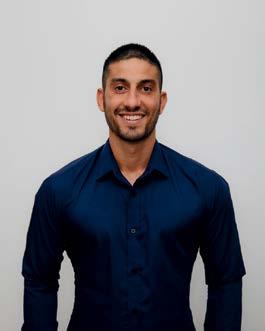


That shifted everything. I now focus on building with those who get it - the ones who lean in, say yes, are curious to learn, and want to be part of something bigger.
If you had to describe your year in three emojis, which would you choose?

What’s one misconception about allied health that you wish you could change?
That there’s one “right” person or profession for every client.
No single practitioner or discipline holds all the answers. The best care is multidisciplinary, layered, and collaborative. Outcomes improve when clients are supported by a team, not just one provider. We’re better when we work together.
What’s in store for you in 2025? What’s next for you? Any projects?
2025 is about consistency and expansion. With many projects already in motion, the focus is on continuing to share my frequency with larger audiences, helping inspire strong leaders and supporting those already doing great work.
I’ll be stepping more into leadership development and education — passing on what I’ve learned through osteopathy, team building, and culture work. Whether it’s building high-performing teams, running workshops, or speaking on bigger stages, it’s all about raising the standard and energy of what’s possible.
What is your vision for Allied Health in Australia?
I want to see more advanced practitioners and strong leaders emerging within osteopathy. That means improving recognition, growing representation within both allied health and sports medicine industries, and lifting the standard of care through collaboration, not competition. Each allied health profession brings something unique to the table. There are no new messages, just new messengers, and when we work together through improved interdisciplinary approaches, we enhance outcomes for everyone. If we can preserve our original principles while applying them in modern, evidence-based, performancefocused ways, we strike the balance between tradition and innovation. That’s how we continue to elevate the entire industry.
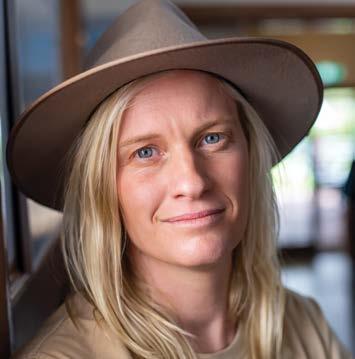



How can we connect with you?

